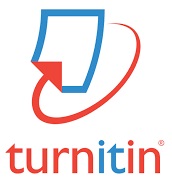Peningkatan Hasil Belajar IPAS Melalui Model Problem Based Learning Terintegrasi Teaching at the Right Level Siswa Kelas VI Sekolah Dasar
Abstract
The problem in the study difficulty of teachers in determining effective science learning strategies which resulted in low learning outcomes. The study aimed improve science learning outcomes through the application of integrated Problem Based Learning model TaRL for grade VI students of SD 1 Bakalan Krapyak. This study a Classroom Action Research (CAR) carried out in 2 cycles. Each cycle consisted of planning, implementation, observation, and reflection. The subjects of the study were 20 grade VI students. The data collection techniques used observation, interviews, and learning outcome tests. The data analysis technique used descriptive quantitative. The results of study showed increase in learning outcomes each cycle. Classically, learning outcomes in cycle I obtained average 72.8 and cycle II with average 78.5. The percentage of learning outcomes completed cycle I 55% and cycle II 70%. The results of study concluded was successful in improving learning outcomes because had achieved the established success indicators, namely student learning outcomes reaching an average of ? 75. The school should provide support and encourage teachers, especially in science subjects, to create active and innovative learning processes. Thus, students will be more enthusiastic and motivated so that it will have an impact on improving learning outcomes.
Keywords
Full Text:
PDFReferences
Afandi, D. D., Subekti, E. E., & Saputro, S. A. (2024). Pengaruh Model Pembelajaran Problem Based Learning Terhadap Hasil Belajar Matematika Siswa. Kognitif: Jurnal Riset HOTS Pendidikan Matematika, 3(2), 148–157
Anggraheni, B., Utaminingsih, S., & Ismaya, E. A. (2024). The Effectiveness of Problem-Based Learning Snakes and Ladder Media in Social Studies for Class V Elementary. ASEANA: Journal of Science And Education, 1, 21–27. https://doi.org/10.53797/aseana.v4i1.4.2024
Arikunto, S. (2021). Penelitian Tindakan Kelas: Edisi Revisi. Bumi Aksara.
Colle, A. A. T. L., Nurnia, N., & Rabiah, R. (2023). Improving the Students’ Writing Skills by Integrating Problem-based Learning (PBL) with Teaching at the Right Level (TaRL) Approach in Class 7. C of SMP-TQ Mu’adz bin Jabal. Journal of English Language Learning, 7(1), 325–333. https://doi.org/10.31949/jell.v7i1.5624
Diniyarti, N. W., & Agustika, G. N. S. (2023). The Impact of the Teaching at the Right Level Approach on Critical Reasoning in Mathematics Learning in Elementary Schools. Thinking Skills and Creativity Journal, 6(2), 152–159. https://doi.org/10.23887/tscj.v6i2.64619
Fitriani, S. N. (2022). Analisis Peningkatan Kemampuan Literasi Siswa Dengan Metode ADABTA Melalui Pendekatan TARL. BADA’A: Jurnal Ilmiah Pendidikan Dasar, 4(1), 69–78. https://doi.org/10.37216/badaa.v4i1.580
Halimah, S., Usman, H., & Maryam, S. (2023). Peningkatkan Kemampuan Berpikir Kritis Dalam Pembelajaran IPA Melalui Penerapan Model Pembelajaran Problem-based learning ( PBL ) di Sekolah Dasar. JSIM: Jurnal Ilmu Sosial Dan Pendidikan, 3(6). 403-413. https://doi.org/10.36418/syntax-imperatif.v3i6.207
Lestari, R. E., Sukendro, S., & Syahrial, S. (2024). Penggunaan Pendekatan TaRL untuk Meningkatkan Keaktifan dan Hasil Belajar Peserta Didik pada Mata Pelajaran IPAS di Kelas V Sekolah Dasar. JIIP - Jurnal Ilmiah Ilmu Pendidikan, 7(5), 4993–4998. http://dx.doi.org/10.54371/jiip.v7i5.4452
Magfirah, F., Haris, A., & Ernie. (2024). Implementasi Pendekatan Teaching at The Right Level(TaRL)untuk Meningkatkan Hasil Belajar IPA. Jurnal Pemikiran Dan Pengembangan Pembelajaran, 6(2), 860–861.
Mahmudi, M. R., Yulia Darniyanti, & Anisa Oktaviani. (2023). Pengembangan Modul Ajar Berbantukan Canva Pada Mata Pelajaran IPAS Dalam Kurikulum Merdeka Kelas IV Sekolah Dasar. Didaktik : Jurnal Ilmiah PGSD STKIP Subang, 9(2), 4910–4921. https://doi.org/10.36989/didaktik.v9i2.1289
Nainggolan, E., Kusumo, G., Purnami, S. H., & Dharma, U. S. (2024). Implementasi Problem Based Learning Terintegrasi TaRL terhadap Hasil Belajar Kognitif Kelas IV SD Negeri Plaosan 1. AR-RIAYAH: Jurnal Pendidikan Dasar, 8(2), 193–214. https://doi.org/10.29240/jpd.v8i2.11038
Nurohmah, N., Suchyadi, Y., & Mulyawati, Y. (2022). Pengaruh Gaya Belajar Terhadap Hasil Belajar Matematika Di SD Negeri Sukaharja 01 Kabupaten Bogor. Journal Of Social Studies, Arts And Humanities (JSSAH), 1(2), 86–94. https://doi.org/10.33751/jssah.v2i1.6094
Paratiwi, T., & Ramadhan, Z. H. (2023). Model Pembelajaran Problem Based Learning untuk Meningkatkan Aktivitas dan Hasil Belajar Siswa Pada Pembelajaran IPAS Kelas V Sekolah Dasar. Journal of Education Action Research, 7(4), 603–610. https://doi.org/10.23887/jear.v7i4.69971
Rahman, S. (2021). Pentingnya Motivasi Belajar Dalam Meningkatkan Hasil Belajar. ALFIHRIS : Jurnal Inspirasi Pendidikan, 2(3), 61–68.
Samroni, S. M., Santoso, Sri, U., Amitabh, & Dwivedi, V. (2021). Effect of PBL and TPS Learning Models on The Quality of Learning. Asian Pendidikan, 1 (2), 41-46. 2, 41–46.
Sagita, N., & Ikashaum, F. (2023). Pengaruh Model Pembelajaran Problem Based Learning Terhadap Hasil Belajar Matematika Siswa. Kognitif: Jurnal Riset HOTS Pendidikan Matematika, 3(2), 148-157. https://doi.org/10.51574/kognitif.v3i2.955
DOI: https://doi.org/10.56842/jp-ipa.v6i01.483
Refbacks
- There are currently no refbacks.







